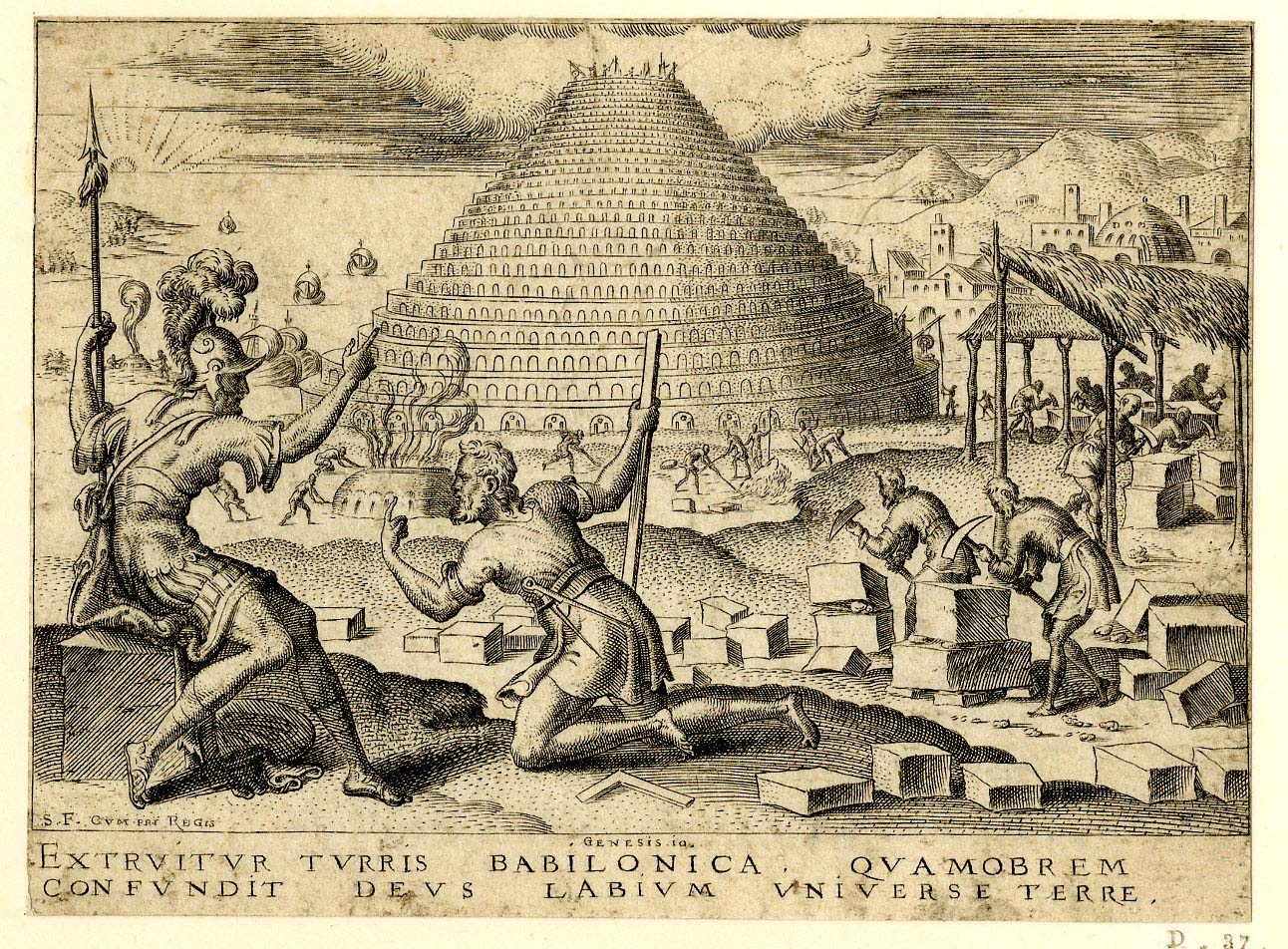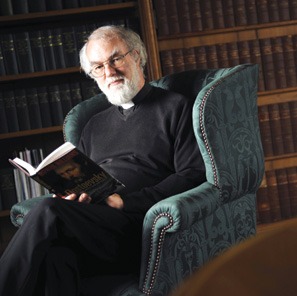
Dear Tom,
As scientists, we surely both subscribe to a view of the universe that is compatible with the scientific method. Without the belief that the world is orderly, causally complete, and (in principle) explicable in terms of the properties of physical matter and lawful forces, the methods of science would be unreliable. But they are not. One after another, phenomena that previously seemed utterly mysterious – from the motion of stars to the nature of life – have succumbed to the explanatory power of science.
Curiosity and exploration are essential for the survival of mobile organisms. Exploring the environment in order to understand it and to use that knowledge to predict events is clearly important for any animal looking for food or a mate, and trying to avoid being someone else’s dinner. Presumably it is the enormous brain of human beings that propelled us into the state of exaggerated curiosity that distinguishes our species. Perhaps we should have been called Homo curiosus, rather than Homo sapiens: without curiosity, there could be no wisdom.
I suspect we’ll agree that a lust for understanding underpins both religion and science. But, to my mind, they are epistemologically incompatible. In our quest to comprehend nature (including our own nature), there is no place for ideology, dogma and unjustifiable faith. Nor for appeals to the ‘super’-natural.
Yours,
Colin
Dear Colin,
I was rather hoping for something that I might be able to disagree with! Love the Homo curiosus idea, and the ‘lust for understanding’. Well perhaps I can disagree with your assumption at the end that ‘religion’ is some sort of alternative epistemology for finding out knowledge about the world. You sketch the convenient (Auguste) Comtean picture of science slowly replacing ‘religion’ as explanation, as it paints the priest and prophet into an ever-vanishing corner of the epistemological room. It’s such a common misunderstanding, but that doesn’t change the fact that it is just that. So, I’m not surprised at the hurling around of words like ‘ideology’, ‘dogma’ and ‘unjustified faith’ – perhaps there is rather a lot to unpick here after all.
Let’s start with your (and our shared) ‘belief that the world is orderly…’ It’s true – continually, miraculously (in the bare sense of the word) it’s faith that turns out to be justified. We don’t know if that will continue of course, but both suspect that it will. Kepler, Faraday, Maxwell, Einstein, Hoyle and many other scientists have not unreasonably raised the theological significance of the discovery that mental structure is there in the universe.
My tradition of Judeo-Christianity is not a set of rival explanatory ‘supernatural’ causes for the world, but (among many other things) a story of how humans have come to terms with their relationship to that world (and yes with its Creator). The great medieval scientific enlightenment lit the fuse that led to the events we call the ‘scientific revolution’ with methods of observation and cognition, and with a driving narrative of purpose and hope, that was explicitly generated by a theological narrative. The early moderns, Francis Bacon, Robert Boyle, Newton himself – drove experimental science from the same source.
Science can give helpful evolutionary and anthropological explanations of where curiosity came from, but it cannot give us the story we need to live in now, on why we do science itself, for what end and for whom, why human persons find, as Kant put it, a disjuncture between the ‘is’ and the ‘ought’. I am trying to get at what Einstein meant when he said:
"Religion without science is blind; science without religion is lame."
Yours,
Tom
Dear Tom,
Yes, we have plenty to agree on – especially the explanatory power of science, and its dependence on the regularity and lawfulness of the universe. And I agree that mystical notions might have provided human beings, in the past, with a normative mythology, partly reassuring, partly intimidating, about the role of people on this earth. But the existence of an idea, even if widespread among humans, even if powerful in its influence, doesn’t make it correct.
There are two themes in your reply that I’m eager to discuss when we meet on 26 January. The first is your suggestion that the Judeo-Christian narrative is not an explanation myth but ‘a story of how humans have come to terms with their relationship to that world’. Apart from the fact that Genesis 1:1 seems to have been forgotten, I wonder how you can accept fables and legends, bereft of evidence, as anything more than fiction. And if you mean that religious codes have provided people with essential guidance on how to relate to each other and to the natural world, I must remind you that religio-politics (from far right Christian fundamentalism to Jihadist terrorism to Buddhist ethnic cleansing to Zionist Islamophobia) isn’t doing a very good job. Our only chance of coming to terms with each other and the world lies in the genuine understanding of that world and of the nature of human beings that comes from evidence-based scholarship (in the humanities as well as science).
The second is your notion that the inspiration for scientists (and even for science itself) was ‘a driving narrative of purpose and hope’ provided by religion. Human beings certainly have a tendency to see purpose and meaning in the world, as well as an inclination to perceive agency and intention. These cognitive dispositions are efficient ways of identifying the presence and actions of other people, but they can lead to a false model of causation based on intention, and the curious view that life is valuable only if it has some undefined ‘meaning’. I think that this is the more correct interpretation of your statement that ‘mental structure is there in the universe’. As for religion inspiring science, you proffer Bacon, Boyle and Newton. But I raise you Bohr, Medawar, Tinbergen, Higgs, Crick, Monod, Kroto, Chadwick, Brenner, Bondi, Pauling, etc. As for Einstein and the enigmatic words that you cite, I submit his own explanation:
"I do not believe in a personal God and I have never denied this but have expressed it clearly. If something is in me which can be called religious then it is the unbounded admiration for the structure of the world so far as our science can reveal it."
Hear, hear.
Yours,
Colin
Dear Colin
We have established that very clever and wise scientists can be atheists, and equally can be theists. Very detailed sociological work along these lines has been carried out more recently by sociologists such as Elaine Ecklund at Rice University. But all that does is to give us pause before we take the line that either worldview is obviously right, or obviously wrong. I think that an equally sterile course would be to pivot an argument on the worst excesses of those who distort tradition to violent and poisonous ends (including those of the officially atheist regimes we have seen only since the 20th century).
We ought to discuss what ‘accepting fables and legends’ (I have always preferred ‘myths’) might mean. Since you mention Genesis 1 (forgotten by whom, by the way, and accepted as meaning what?) it might be helpful in the context of the British Museum to recall the many historical modes of reading such texts that are far more sophisticated than our repertoire today: analogical, anagogical, metaphorical, apocalyptical, normative, and so on. I am always saddened by the cultural failure to read the Bible in our age (irrespective of belief), simply because we miss the wealth of ancient evidence for the way humankind has looked for meaning, in just the way you point out. Berlin philosopher Susan Neiman has claimed, for example, that the Book of Job should be considered alongside Plato as a foundation text for western philosophy. In any case it contains some of the most sublime ancient nature poetry I know, and convinces me that the seeds of what we now call ‘science’ were sown many generations ago.
I would love it if we could get beyond and behind arguments ‘for’ and ‘against’ theistic belief at the public debate – and unpack the stated purpose on the blurb: ‘how science is itself at the heart of being human, and can be traced back through art, philosophy and ancient stories, including those in religious traditions’. I think that one can make a case that one reason for the damaging cultural divide between what we term ‘arts’ and ‘sciences’ is the loss of the religious and theological glue that once held them together.
Yours,
Tom
This blog originally appeared at the British Museum's website.
Tom and Colin will continue this discussion live at the British Museum on Friday 26 January 2018. They will talk about how science is itself at the heart of being human, and can be traced back through art, philosophy and ancient stories, including those in religious traditions.
The exhibition Living with gods: peoples, places and worlds beyond is on from 2 November 2017 to 8 April 2018. Supported by the Genesis Foundation. With grateful thanks to John Studzinski CBE.
The accompanying BBC Radio 4 series was broadcast from 23 October to 6 December 2017. You can download it as a podcast.
"Living with the Gods" by Neil MacGregor will be published by Allen Lane in March 2018.

